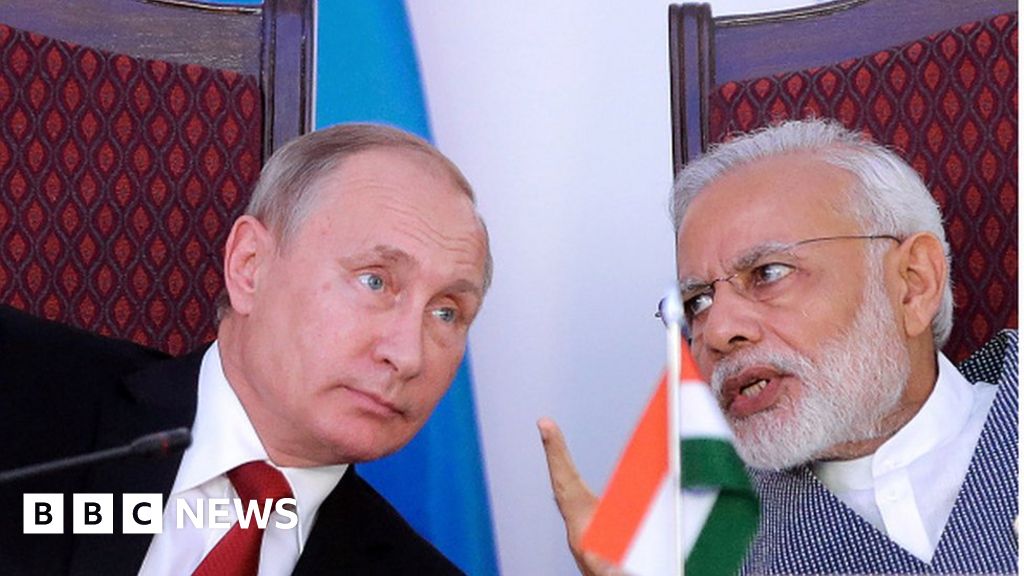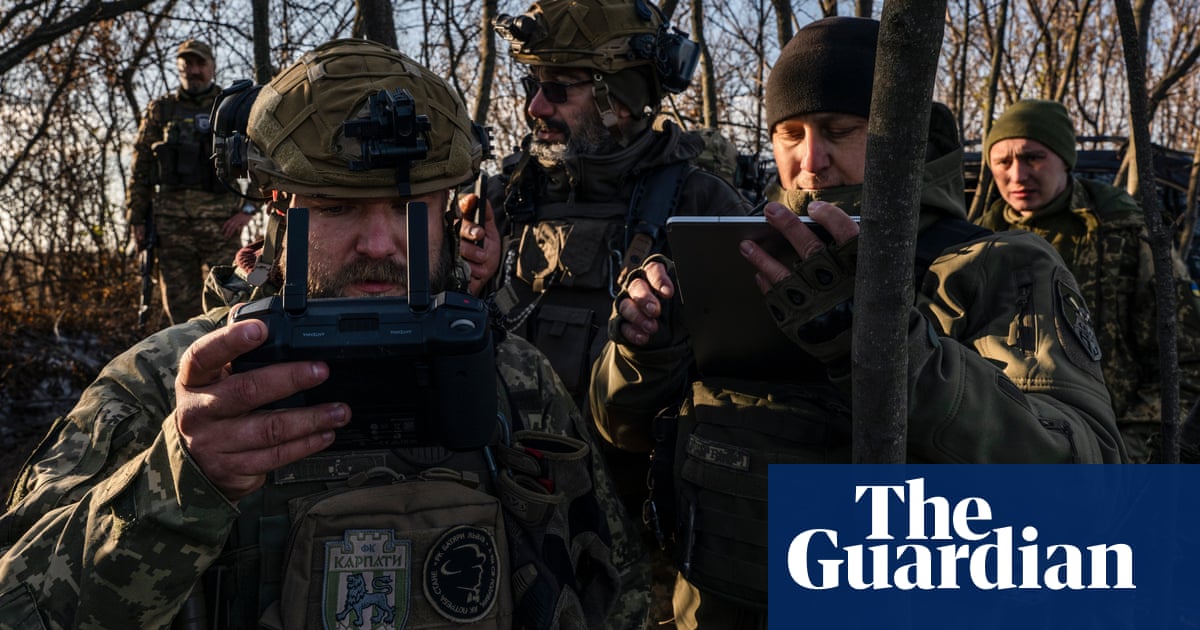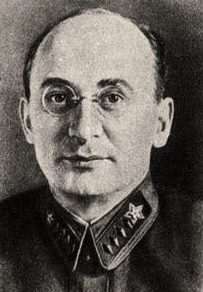Depending on the post, I either read that Ukrainians and Russians are of the same cloth, or I read that Russians view Ukrainians as sub-human.
I doubt both are true in Russian messaging and decision making. I do accept that the Russian nationalist-fascist contingent view Ukraine as part of Imperial Russia
There is a contradictory fault line running through Russian thinking. Among the Muskovites/Russians in power, being Russian is the best thing a person could possibly be. Timothy Snyder talks about the belief that Russians are eternally innocent and therefore can't do wrong. It's a very convoluted thought process and I'd refer you to the lecture series for the detailed explanation. It's so bizarre I don't remember the details.
The thinking of the Russians is alien to us in the west. The Russian leaders talk about how Russia is the inheritor to the Roman Empire. The progression goes Rome->Byzantium->Russia. It's almost like it's some sort of prophesy fulfilled. There is magic thinking there.
To these people being Russian is the best thing, and the people who have the opportunity to become Russian, but decline are just ignorant. They are passing up the opportunity to be great.
But there are different types of Russians. There are the Muscovite/St Petersburg Russians who are at the top of the pecking order and then there are other Russians who are subservient to the top Russians.
In the mind of these people, the Ukrainians should be second tier Russians. The truth is that Russia is diminished without Ukraine. Ukraine did a lot of the higher tech quality manufacturing and design in the USSR and Russia is struggling without Ukraine. Before the invasion, Ukraine was making a lot of tech that went into Russian products. Russia needs Ukraine to make tech items like weapons.
On the one hand, the Russian leaders consider the second tier Russians as sub-human, but at the same time they are also Russian.
It's convoluted and tough to fully grok. Russian thinking is alien to a westerner.
Thanks for all your posts
@wdolson .
So Russia = corrupt (bad)
Ukrainian patriots = honest (good)
Am I a dreamer to hope Russian orthodox "Christians" being KGB controlled might set a new, widely accepted paradigm in favor of reason and sanity vs. religion, or at least opens everyone's eyes about the damage religion causes?
Nothing is black and white, but as far as who is right and who is wrong with regards to this war, it is pretty clear cut. Ukraine is the wronged party here. Since the early 1990s all they have really wanted was to exist in peace. They did everything within reason to try and co-exist with their larger neighbor.
Russia was too weak to try anything for some time, but under Putin they tried to keep Ukraine as a vassal state and when Ukraine made it clear in 2014 they wanted to go their own way, Russia stepped up the aggression.
2014 was the equivalent of Germany taking back the Rhineland in 1936. If France and the UK had reacted then, Hitler would have been stopped before he got started. But they showed weakness and Hitler kept going.
But in 2014 Ukraine was not strong enough to defend itself. It was still finding its footing with a new government after the Maidan Revolution and the army was in disarray. One thing the Obama administration and other NATO countries did do was to start training the Ukrainian army in NATO tactics and it revolutionized the army. Both Ben Hodges and Mark Hertling were involved in this training and both predicted the Ukrainians would win from the start of the war. They knew what kind of army Ukraine had, even though few outside of Ukraine saw that.
In 2022 Putin expected the same weak response from the Ukrainian army as 2014, but instead he found a NATO trained force that was much better disciplined and trained than his own forces. The army Ukraine is fielding today is not only larger than it was in February 2022, but it's also much better trained. One of the NATO lessons is to always be learning and adapting to changing conditions and Ukraine took that to heart. They are probably the best trained army in the world for this type of war right now. The rest of the world will be learning from them in the coming years.
I wouldn't say religion is completely bad, but it is an institution that can be corrupted by bad actors for their own ends. This has happened on a massive scale with the Russian Orthodox Church and it has happened on smaller scales with other religions around the world. It's one thing to say "I think you should do X", it's another to say "a deity told me you should do X".
There is nothing inherently bad with having beliefs and there are many religious organizations that have done good in the world. But everything has to be taken on a case by case basis. I personally don't like others telling me what I should believe, but others find comfort in a religious community.
Just like you have regions with different flavors in the US, you have that in Russia and Ukraine. Of the total 10 years (not continuous) I spent in both countries, I saw a lot of snobbishness based on where you were from.
If you come from one of the capital cities in Russia (Moscow or St Petersburg), everyone else in the country is basically from the hicks. When I lived in Moscow, I encountered so many people who claimed to Muscovites that based on their accident were clearly not from there.
In Ukraine, it would basically Kyiv and then some of the other major cities at the top of the list. In general I saw Russians were often dismissive of their "little brother" Ukraine in a way I couldn't quite fathom and it annoyed the heck out of my Ukrainian friends.
Once Ukraine made their national language Ukrainian again, I saw a distinct shift away from Russia. There were still many family members who had relatives in Russia, or come from Russia, but the Ukrainian was becoming a more common national identity in a lot of the country even if it did start more in the western part. When you had solely Ukrainian band, Okean Elzy, start to make a dent in Russian music, even on MTV Russia, it was really supporting the Ukrainian national identity and breaking away from Russia even more at a cultural level. Their song that really caused them to break out "Tam, de nas nema" is actually quite good.
This really got the younger generations onboard and identifying with Ukraine more than Russia.
As for corruption, I lived in Russia for about 5 years straight. Corruption was an every day fact of life. It was systemic and almost at all levels. While Ukraine was corrupt, I saw it less at the local level. Zelensky ran on a platform of removing corruption. As deeply ingrained as it was, it was never going to be removed overnight.
In Russia I was constantly shaken down by the local militia (police). They assumed I was a stupid foreigner, but I was not. From speeding tickets to visa issues, to almost every place they could try and shake me down, they gave it a shot. A lot less so in Ukraine. I must say that one of episodes of a very egregious attempt at corruption almost resulted in me and some friends going to jail in Ukraine. Thankfully I played dumb and the police were talking in Russian and didn't know I understood everything they were saying. It was an epic attempt at a shakedown though so I'll give them props for trying.
At the same time, corruption can be useful if used for your benefit and it doesn't really hurt anyone. When I had my apartment in Sevastopol (in Crimea and before the Russian appropriated it with the invasion of Crimea). I used to keep a case of vodka in my car for whenever I got stopped.
The militia in Russia and Ukraine typically only stop you for typically 2 reasons; they are either hungry or thirsty. Food would spoil so I kept a case of good vodka on hand. They sometimes view you as an ATM machine as well. I bought a cheap car to drive and never dressed nicely. I wanted to keep my donations at a minimum if I had to give them. Attracting as little attention as a foreigner as possible is the way to a less stressful time there.
I am probably one of the few people in the world that can say I am alive thanks to Putin rather than dead. Which is rather ironic given my opinion of him. That is a story for another day over some beers and not in a public forum anyway.
If the world had stood up to Putin when he invaded Crimea (that means you President Obama), we wouldn't be here now.
There were some heavy sanctions put on Russia in 2014 which were considered pretty strong at the time. But unfortunately Ukraine was not prepared to defend itself then. Militarily stopping Putin would have meant direct involvement by western countries in the conflict and there was little stomach for that in 2014.
I remember a thread from Kamil Galeev about 8 months ago about how people in the west are safe to show off their wealth, but in Russia nobody demonstrates they have anything unless they are super rich and can afford a bunch of bodyguards. Anybody demonstrating any wealth will quickly have it stolen. If someone doesn't give up their wealth, they might be tortured until they do.
I thought about that when I saw a video of someone in St Petersburg who was trying to exchange a couple of hundred thousand rubles for Euros on the street (probably planning to escape to the west) and some street thugs ran in and took it all.
I have not watched that Snyder lecture. But this thread is now on page 510, so this 'Mongol-schtick' has been brought up before...
In Sweden we have a state run public service radio channel called P1. "...] which subtitles itself "The spoken channel" [...]. [It] is the principal radio channel in Sweden for news, community programmes, culture, radio drama, debate, science, philosophy, the expression of opinion and international issues. [..."

en.wikipedia.org
I'm pretty sure I've listened to
literally everything they've transmitted about the Russian Dictator's Genocide in Ukraine. Everything on that channel is available as a podcast.
And no-one has mentioned this 'Mongol-schtick' even once(!)...
I had a number of good news sources that I regularly tuned in before the war on various topics. Early in the war I became disgusted with all of them. Their coverage of the war was terrible.
I sought out and found a number of English language sources that were closer to the source. These were sometimes ex-pats of Russia or Ukraine, sometimes Ukrainians in country. Nexta is run by someone from Belarus living in exile in Poland. There are also sources like Mark Hertling and Ben Hodges who have direct experience training the Ukrainian army.
I sorted for the sources that made sense. I have been a student of military history virtually my entire life. I turned away from my normal news sources because what they were saying just didn't square with what I knew about how military operations worked and the new sources did.
Sources like Kamil Galeev and Timothy Snyder don't address the military aspects directly, but they understand Russian thinking better than most of the west. In Galeev's case, he grew up in Russia, went to university in the UK, and now works as an intelligence analyst in the United States. He is very well versed in history, both what they teach in Russia and what is taught in the west and he knows the differences.
Timothy Snyder is one of the top historians in the US on eastern Europe and Russia. He is appearing in a lot of places now because of his expertise. In the lecture series on YouTube he mentioned a number of times that there were students in the class from Ukraine and eastern Europe. They probably wouldn't be taking classes from him if what he was saying didn't conform to the history they already knew from their home country.
I don't know about other county's reporting on this war. While I have striven to be as worldly as possible throughout my adult life, unfortunately I am mono-linguistic which limits me to English language sources.
I don't know the quality of Swedish mainstream news coverage, but American mainstream news coverage of this war has been terrible. Sources that usually get the story pretty close to right have just blown it with coverage that doesn't match what I could see happening.
But then US war coverage is not usually very high quality. During the first Gulf War I was living in Seattle and could tune in the CBC over the air from Vancouver in Canada. I thought their coverage was much better than any of the American TV sources I had. Of course we didn't have internet coverage then.
The Mongol ties to Moscow are way back in history. A lot of people probably never think of going back that far to look. Russia is a country that straddles two continents. They want to be seen as European. The Russian courts went overboard in the trappings of the west. Art forms like ballet are big in Russia, but started in Europe.
A deep insult in Russia is to call someone "nekulturny" which means uncultured. The meaning is you don't have the cultured graces of Europeans.
But at the same time, the Russians fight wars like Mongols. They always have.
Russia has straddled the fence between the culture of Europe and northern Asia for all of its existence. Ukraine has straddled the fence between Russia and Europe for most of the same time period. This war has pushed Ukraine over the fence and they are running towards European values and rejecting the Russian ones.
Continued:
A couple of months back – how many of us in this thread knew that the "Russian Orthodox Church = KGB/FSB"?...
I didn't.
How many other people know this?...
I think I saw Kamil Galeev write about it last spring.











